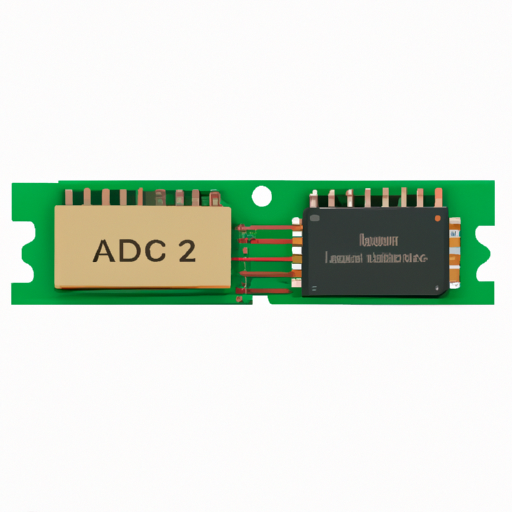Overview of Analog to Digital Converters (ADC)
| 1. Sampling | The ADC samples the analog signal at discrete intervals. The sampling rate determines how often the signal is measured. |
| 2. Quantization | Each sampled value is then quantized into a finite number of levels. This process converts the continuous range of the analog signal into discrete values. |
| 3. Encoding | The quantized values are then encoded into a binary format, which can be processed by digital systems. |
| 1. Consumer Electronics | |
| 2. Medical Devices | |
| 3. Industrial Automation | |
| 4. Automotive Applications | |
| 5. Telecommunications | |
| 1. Smart Home Devices | |
| 2. Wearable Health Monitors | |
| 3. IoT Applications | |
| Resolution: The number of bits used to represent the analog value. Higher resolution allows for more precise representation.Resolution: The number of bits used to represent the analog value. Higher resolution allows for more precise representation. |
| Sampling Rate: The frequency at which the analog signal is sampled. Higher rates can capture faster changes in the signal.Sampling Rate: The frequency at which the analog signal is sampled. Higher rates can capture faster changes in the signal. |
| Signal-to-Noise Ratio (SNR): A measure of the desired signal compared to background noise, affecting the quality of the conversion.Signal-to-Noise Ratio (SNR): A measure of the desired signal compared to background noise, affecting the quality of the conversion. |
| Dynamic Range: The range between the smallest and largest signal that can be accurately converted.Dynamic Range: The range between the smallest and largest signal that can be accurately converted. |
Applications of ADCs
Development Cases
Conclusion

Analog to Digital Converters are essential components in modern electronic systems, enabling the conversion of real-world analog signals into digital data for processing, analysis, and control. Their applications span across various industries, including consumer electronics, healthcare, industrial automation, automotive, and telecommunications. As technology advances, ADCs continue to evolve, offering higher resolutions, faster sampling rates, and improved performance, making them a critical element in the development of innovative solutions.
Overview of Analog to Digital Converters (ADC)
| 1. Sampling | The ADC samples the analog signal at discrete intervals. The sampling rate determines how often the signal is measured. |
| 2. Quantization | Each sampled value is then quantized into a finite number of levels. This process converts the continuous range of the analog signal into discrete values. |
| 3. Encoding | The quantized values are then encoded into a binary format, which can be processed by digital systems. |
| 1. Consumer Electronics | |
| 2. Medical Devices | |
| 3. Industrial Automation | |
| 4. Automotive Applications | |
| 5. Telecommunications | |
| 1. Smart Home Devices | |
| 2. Wearable Health Monitors | |
| 3. IoT Applications | |
| Resolution: The number of bits used to represent the analog value. Higher resolution allows for more precise representation.Resolution: The number of bits used to represent the analog value. Higher resolution allows for more precise representation. |
| Sampling Rate: The frequency at which the analog signal is sampled. Higher rates can capture faster changes in the signal.Sampling Rate: The frequency at which the analog signal is sampled. Higher rates can capture faster changes in the signal. |
| Signal-to-Noise Ratio (SNR): A measure of the desired signal compared to background noise, affecting the quality of the conversion.Signal-to-Noise Ratio (SNR): A measure of the desired signal compared to background noise, affecting the quality of the conversion. |
| Dynamic Range: The range between the smallest and largest signal that can be accurately converted.Dynamic Range: The range between the smallest and largest signal that can be accurately converted. |
Applications of ADCs
Development Cases
Conclusion

Analog to Digital Converters are essential components in modern electronic systems, enabling the conversion of real-world analog signals into digital data for processing, analysis, and control. Their applications span across various industries, including consumer electronics, healthcare, industrial automation, automotive, and telecommunications. As technology advances, ADCs continue to evolve, offering higher resolutions, faster sampling rates, and improved performance, making them a critical element in the development of innovative solutions.






